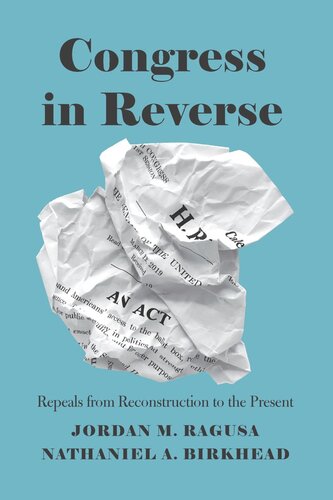

Most ebook files are in PDF format, so you can easily read them using various software such as Foxit Reader or directly on the Google Chrome browser.
Some ebook files are released by publishers in other formats such as .awz, .mobi, .epub, .fb2, etc. You may need to install specific software to read these formats on mobile/PC, such as Calibre.
Please read the tutorial at this link: https://ebookbell.com/faq
We offer FREE conversion to the popular formats you request; however, this may take some time. Therefore, right after payment, please email us, and we will try to provide the service as quickly as possible.
For some exceptional file formats or broken links (if any), please refrain from opening any disputes. Instead, email us first, and we will try to assist within a maximum of 6 hours.
EbookBell Team

0.0
0 reviewsAfter years of divided government, countless Republicans campaigned on a promise to repeal the Affordable Care Act, better known as Obamacare. Yet when they took control of both chambers of Congress and the White House in 2017—after six years that included more than fifty symbolic votes and innumerable pledges—they failed to repeal the bulk of the law. Pundits were shocked, and observers and political scientists alike were stuck looking for an explanation. What made Obamacare so hard to repeal? And in a larger sense: What explains why some laws are repealed, and yet others endure in spite of considerable efforts? Are repeals different from law-making or do they mirror one another? Why are repeals more likely at some times than others? What theories of legislative behavior and policymaking explain when repeals happen?
Congress in Reverse is the first book to attempt to answer these questions. Jordan M. Ragusa and Nathaniel A. Birkhead examine when and why existing statutes are successfully “undone,” arguing that repeals are most common when the parties are united on the issue—which was not the case when it came to Obamacare for the Republican Party—and the majority party wins control of Congress after a long stint in the minority. By shifting focus from the making of laws to their un-making, Congress in Reverse opens up a new arena for studying legislative activity in Congress.